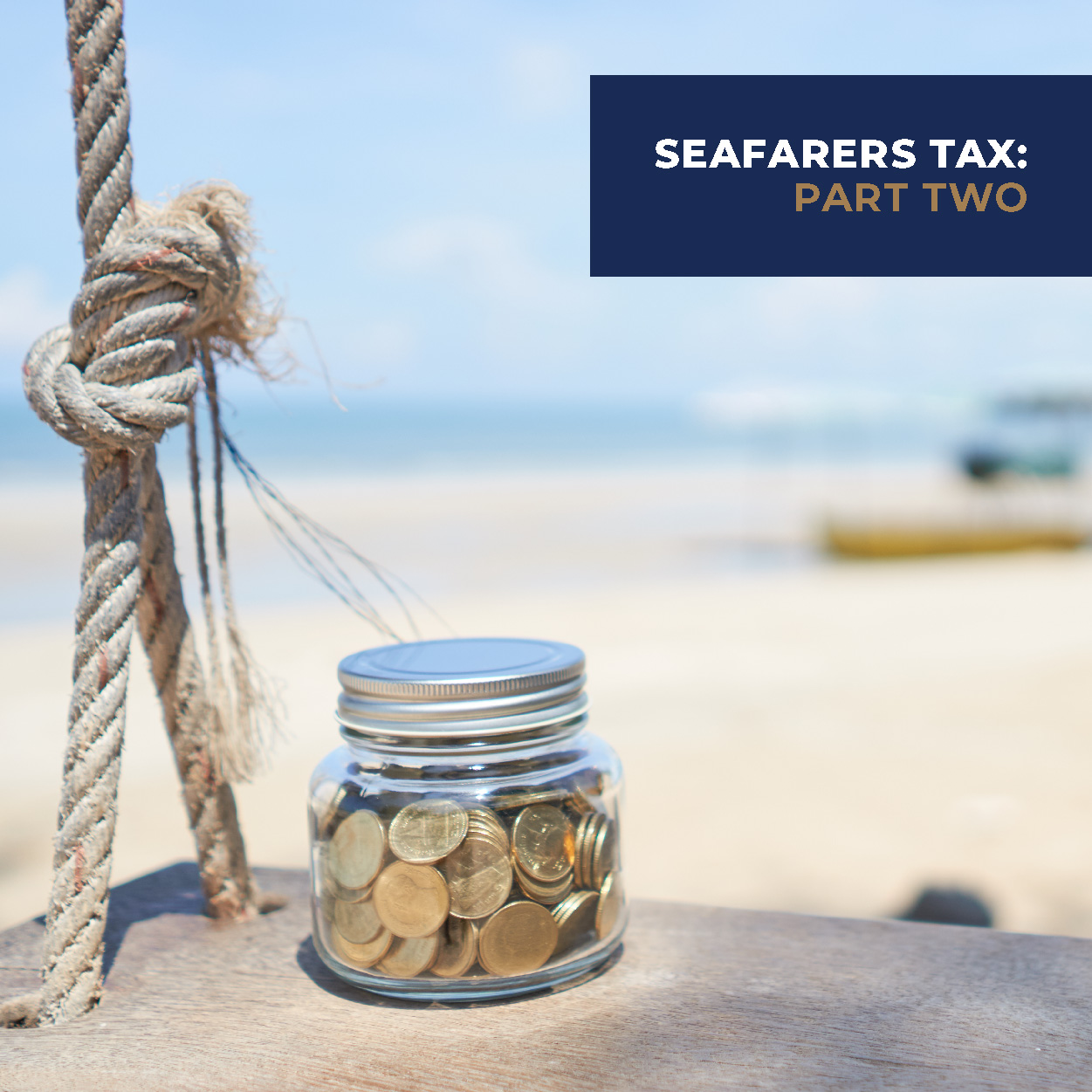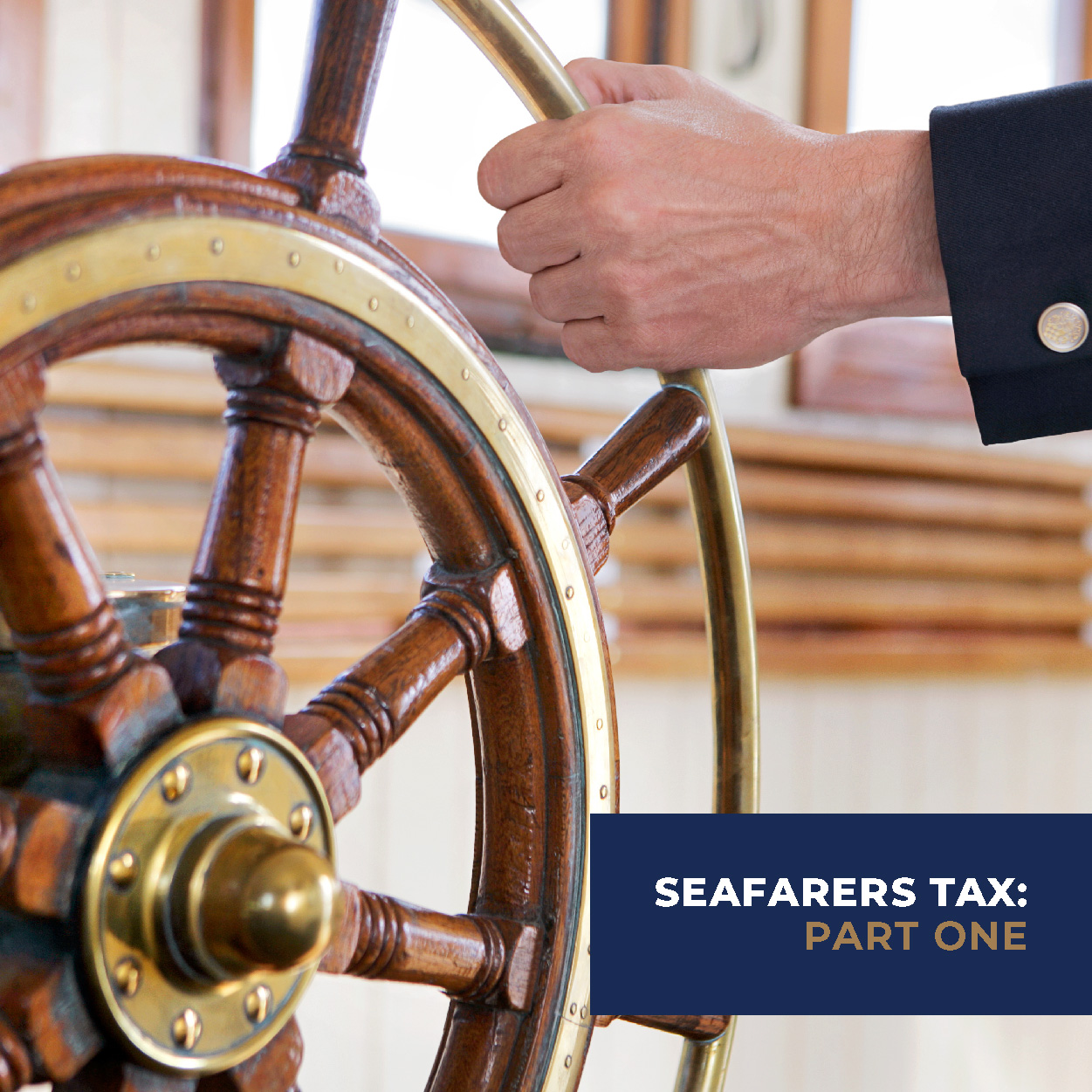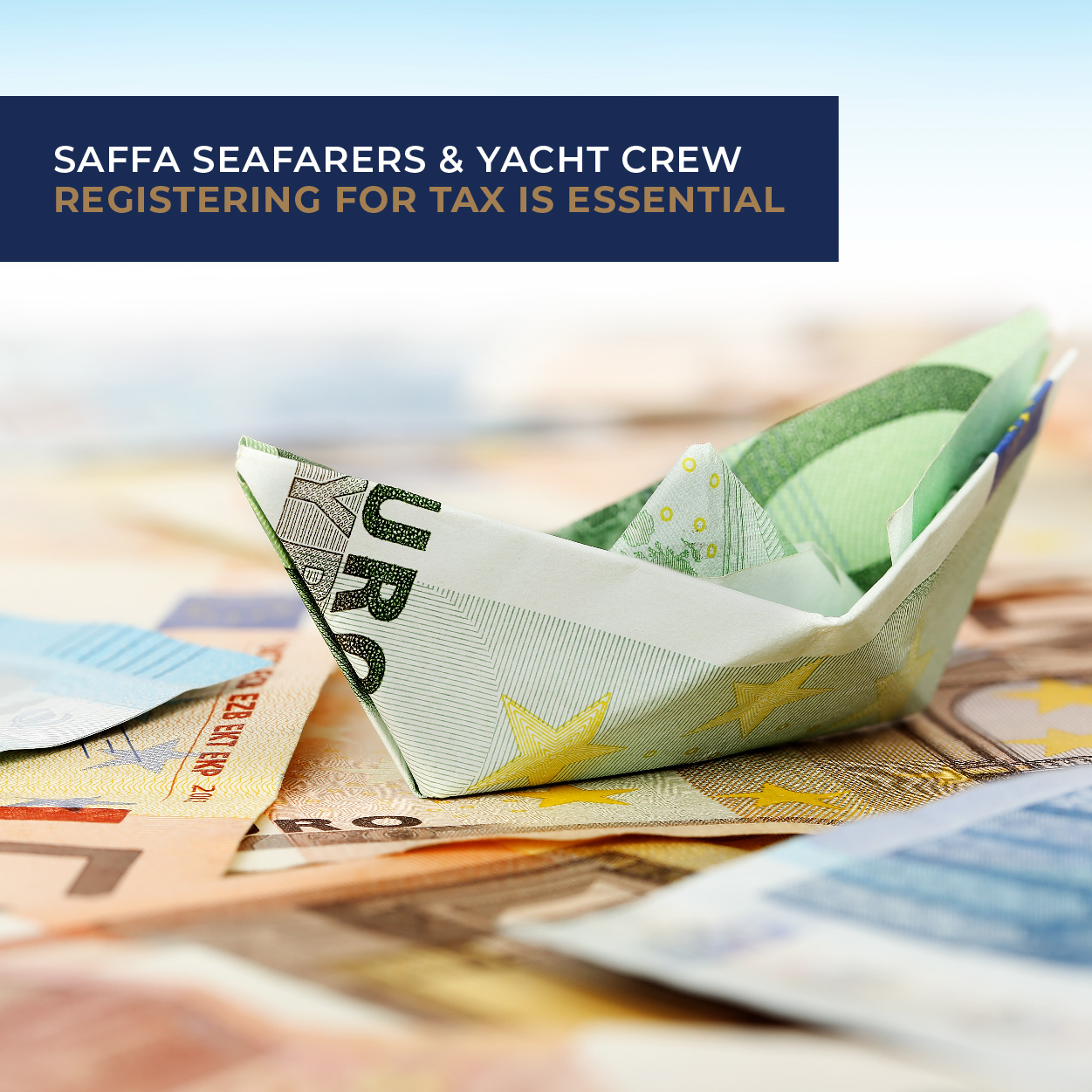SEAFARER TAX: PART TWO
As published in the files folder of the SAFFA Facebook group are the various SARS interpretation notes related to the SA tax act that governs how you are taxed on any forms of income made.
For now, we will concentrate on remuneration in the form of salaries earned as an employee on a vessel. Note that the exemption articles cannot be used by independent contractors or business owners.
In Seafarers Tax: Part 1 we spoke about the residency basis of taxation of the South African tax law, in part 2 we will look at the various exemption articles in Section 10 of the tax laws.
If you are a considered a tax resident of South Africa in terms of the tax laws then the various sections of article 10 exemptions come into play and are important for seafarers to understand.
These exemptions are only for salaried income earned inclusive of any benefits within that salary such as bonuses, travel and car allowances etc.
In practical terms, when you fill in an annual tax return and utilise section 10 to claim exemption on foreign income earned, you are not claiming to be a non-tax resident and inherently stating by use of this article that you are still an ordinary resident of South Africa in tax terms.
There are 3 options to consider;
1. Section 10(1)(o)(i);
2. Section 10(1)(o)(iA);
3. Section 10(1)(o)(ii);
Why three? Well sections 10(1)(o)(i) and 10(1)(o)(iA) deals very specifically with seafarers working on South African or international ships and whom are employed for specific positions/jobs, whereas 10( 1)(o)(ii) commonly referred to the 183/60 days law can be used by those working on land and at sea.
To get a full understanding of these three sections the interpretation notes released by SARS needs to be studied and understood which in itself is a mouthful.
These interpretation notes named:
- INCOME TAX ACT 58 OF 1962 : SECTION 10(1)(o)(i) EXEMPTION FROM INCOME TAX: REMUNERATION DERIVED BY A PERSON AS AN OFFICER OR CREW MEMBER OF A SHIP;
- INCOME TAX ACT 58 OF 1962: SECTION 10(1)(o)(iA) EXEMPTION FROM INCOME TAX: REMUNERATION DERIVED BY A PERSON AS AN OFFICER OR CREW MEMBER OF A SOUTH AFRICAN SHIP;
- INCOME TAX ACT 58 OF 1962 : SECTION 10(1)(o)(ii) EXEMPTION FROM INCOME TAX: FOREIGN EMPLOYMENT INCOME;
Within these interpretation notes are also examples provided of persons and how they would be taxed.
Practically there are many factors that impacts the final result of a seafarers liability to pay taxes which include but are not limit to such as;
- Is the ship, vessel or boat South African registered or International?
- Does the ship, vessel, boat or yacht operate inside or outside the South African coastal legal line?
- What is the purpose of the ship or luxury liners? Is it transporting goods, passengers, exploration mining or fishing?
- Are the officers or crew’s work on board related to the navigation and steerage of the ship, vessel, boat or yacht?
It is not possible in this one article to break down all the aspects of these three exemptions, this is where it is important that you work with professional tax consultants whom are experienced with seafarer taxation. You will need to provide them with a clear and detailed report of your working conditions at sea.
Within the interpretation notes you can find a summary table that can be helpful to determine which is most relevant working conditions to your specific employment situation.
Note: You still have to declare any income made or derived from salary or profits made on investments within South Africa.
Source: Barry Pretorius – South African Tax Petition Group



